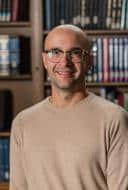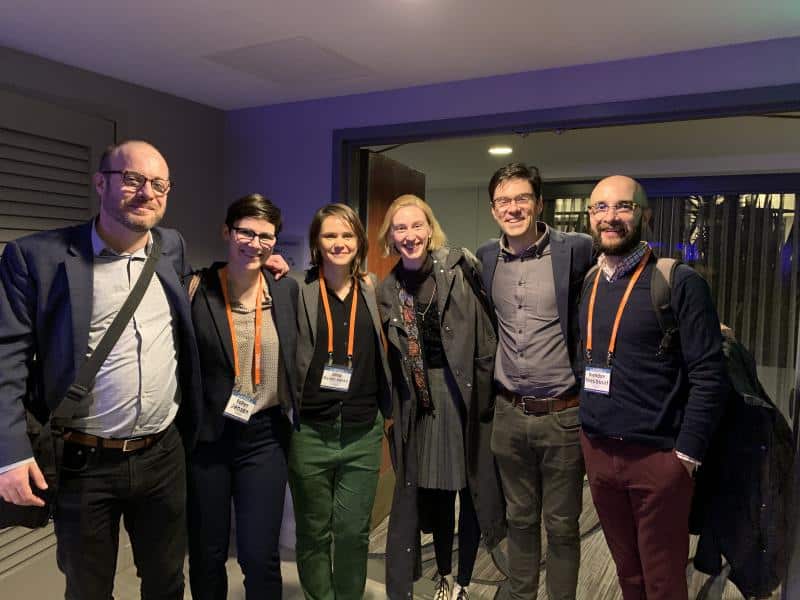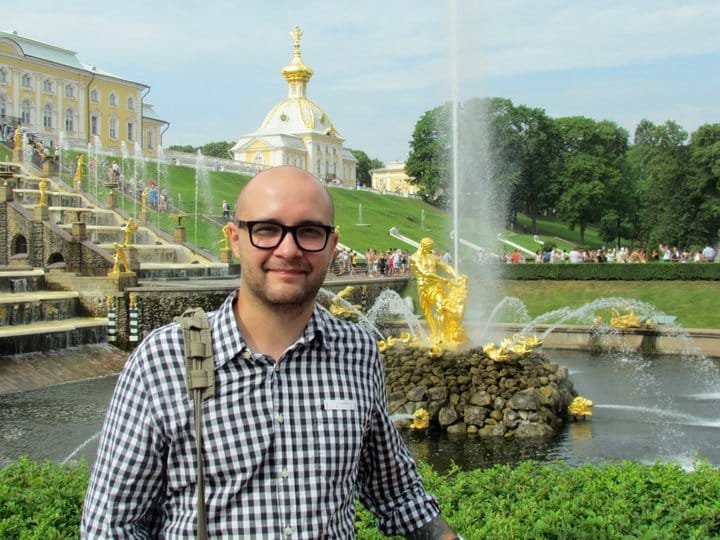
Brendan J. Nieubuurt
Librarian for Slavic, East European & Eurasian Studies, University of Michigan
When did you first develop an interest in Slavic, East European and Eurasian Studies?
I’d already completed my B.A. in English when I discovered Nabokov. I got enchanted by his language and wanted to learn more about his creative heritage. That grew into a love affair with Russian literature more broadly. In 2008 I started taking Russian language and lit courses at Portland Community College and the University of Oregon, and within a few months was taking off for Siberia to study at the Irkutsk State Linguistic University. Somehow, by 2010 I was undertaking Ph.D. studies at Columbia, which I completed in 2018. It was really only toward the end of graduate school when I recognized that a faculty job was not for me. With a lot of previous experience in different parts of the book business, including co-curating a rare book room, I quickly identified librarianship as the field in which I could truly thrive. Swiftly after depositing my dissertation, I enrolled in an MLS (Master in Library Science) program and threw myself at whatever library-related opportunities folks would give me. The stars aligned for me and I landed my dream job as SEEES Librarian here at the University of Michigan in late 2019.
What support have you received throughout your career (from ASEEES/other societies/federal support/etc.) that has allowed you to advance your scholarship?
My graduate studies were made possible by Columbia’s Dean’s and Dissertation Fellowships, a Foreign Languages and Area Studies (FLAS) fellowship in Ukrainian, and a Core Preceptorship. I am also immensely grateful for opportunities to participate in fully-funded professional development programs, such as Middlebury’s STARTALK Institute and Princeton’s Slavic Digital Humanities Workshop, to which I attribute great personal growth. More individual support has been crucial to my career too. For example, when I transitioned to librarianship, Heghine Hakobyan, the University of Oregon’s Slavic Librarian, went out of her way to create an internship for me, without which, I’ve no doubt, I wouldn’t be where I am today.
What is your current research/work project?
Presently, my personal scholarship is largely on hold. But I still aspire to complete my first book. I investigate the phenomenologies of what I’m calling disordered selfhoods and then the role of language in expressing and potentially mending those selfhoods. For instance, if trauma causes a rupture in the sufferer’s sense of self, how does that condition manifest in the sufferer’s language? The great writer and Gulag survivor, Varlam Shalamov, explicitly asks, “how does the man I am today author the subhuman other that the camps forced me to become?” I examine how Shalamov’s poetics respond to the question. Similarly, contemporary phenomenologies of alcoholism ultimately construe the affliction as a diseased perception of oneself and one’s relationship to the social world. I analyze the verbal textures of alcoholic subjectivity in Venedikt Erofeev’s “Moskva—Petushki.”
What does your ASEEES membership mean to you? How has your involvement with ASEEES helped to further your career?

How do you envision your current work within the broader field of SEEES?
I’m convinced that the work of SEEES informationists is of paramount importance right now, and I see our services only increasing in value. The SEEES information landscape—especially the online landscape—is so astoundingly rich. Many SEEES countries are leaders in digitization and open access, for instance. The same landscape can also be uniquely difficult to navigate. In ways too numerous to list, my colleagues and I are working to compile, preserve, and connect researchers with the resources and the materials that will power scholarship across the disciplines within SEEES. On a more personal level, I wish in my graduate studies I’d fully appreciated just how much my school’s SEEES librarian (the wonderful Rob Davis) could have supported my scholarship. To my embarrassment, I didn’t realize how inefficiently I was researching until I got to library school and entered the field. That’s why today I prioritize outreach to graduate students, in hopes of equipping them with strong skills early on.
Besides your professional work, what other interests and/or hobbies do you enjoy?
When I’m not hanging out with my wife and three small children, I enjoy long-distance running and CrossFit. More recently I developed a baking bug. I’ve long wanted to take up beekeeping and hope to start cultivating my first hive this spring.
